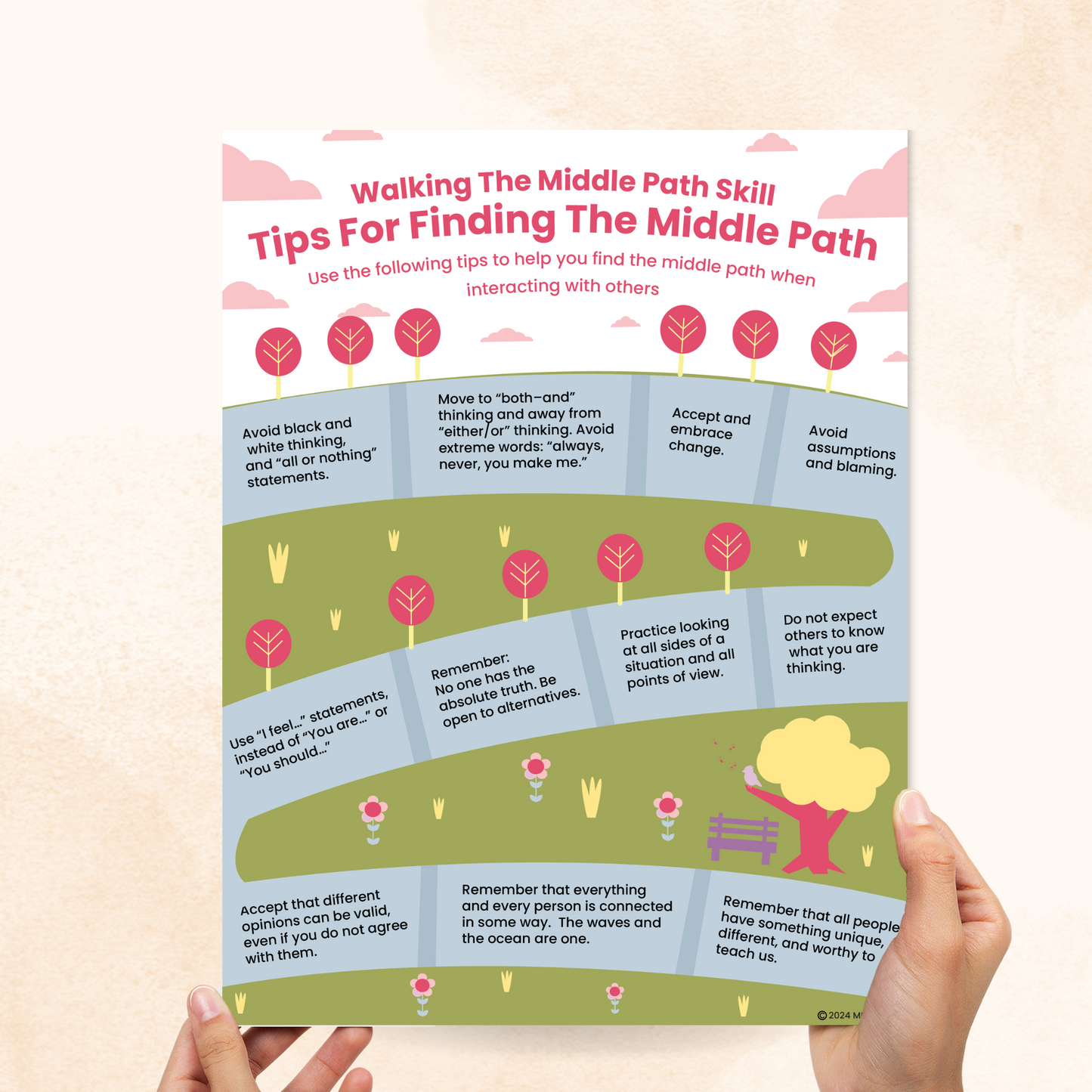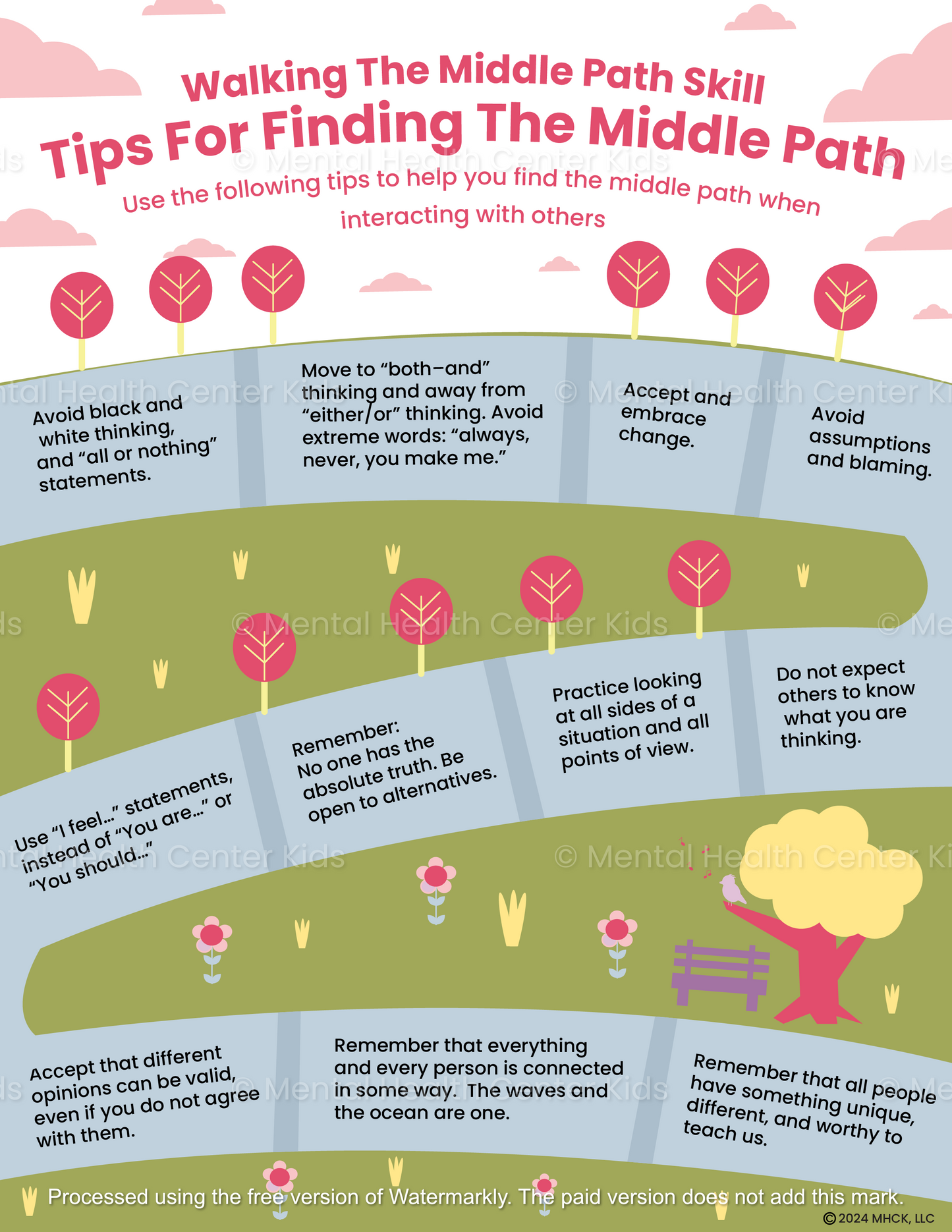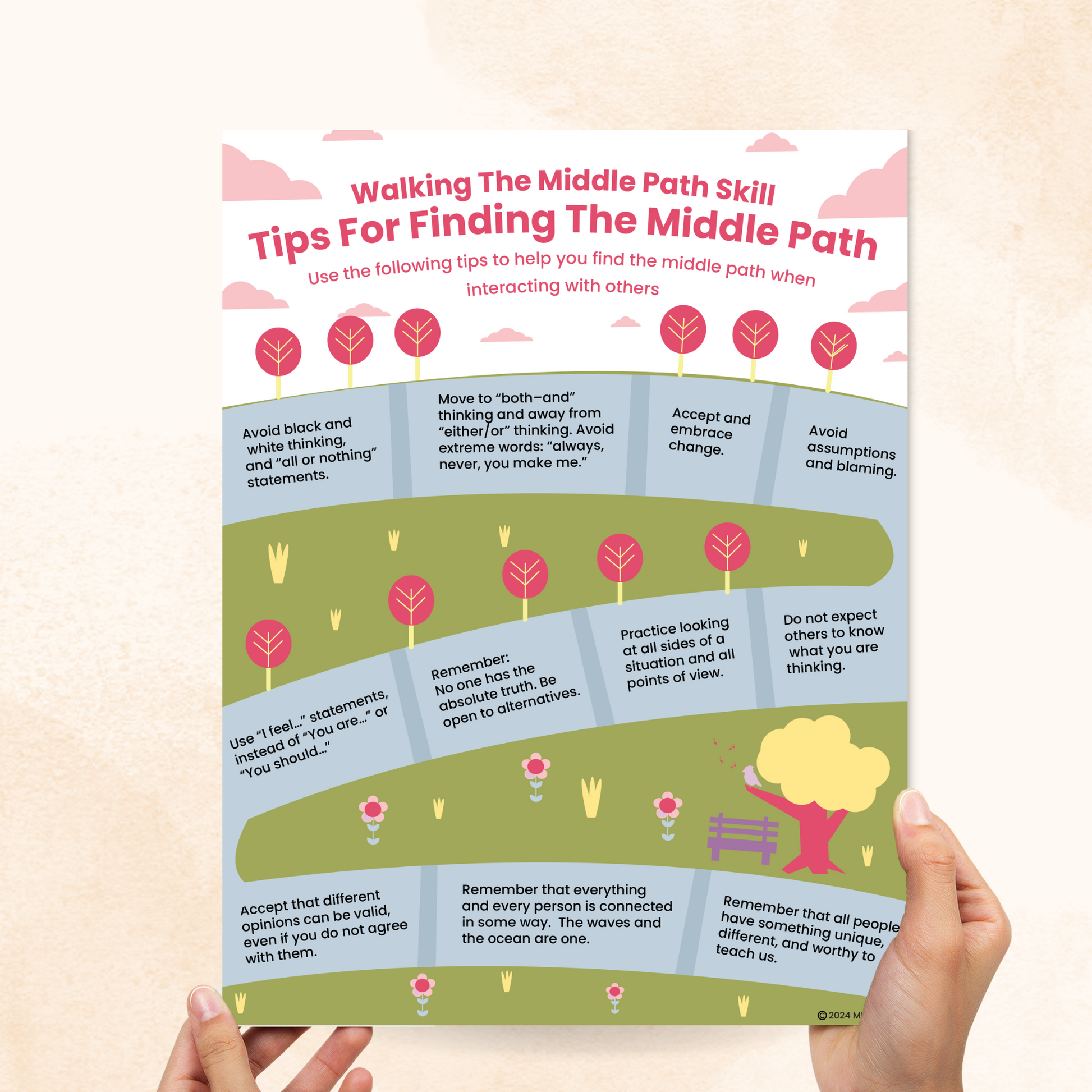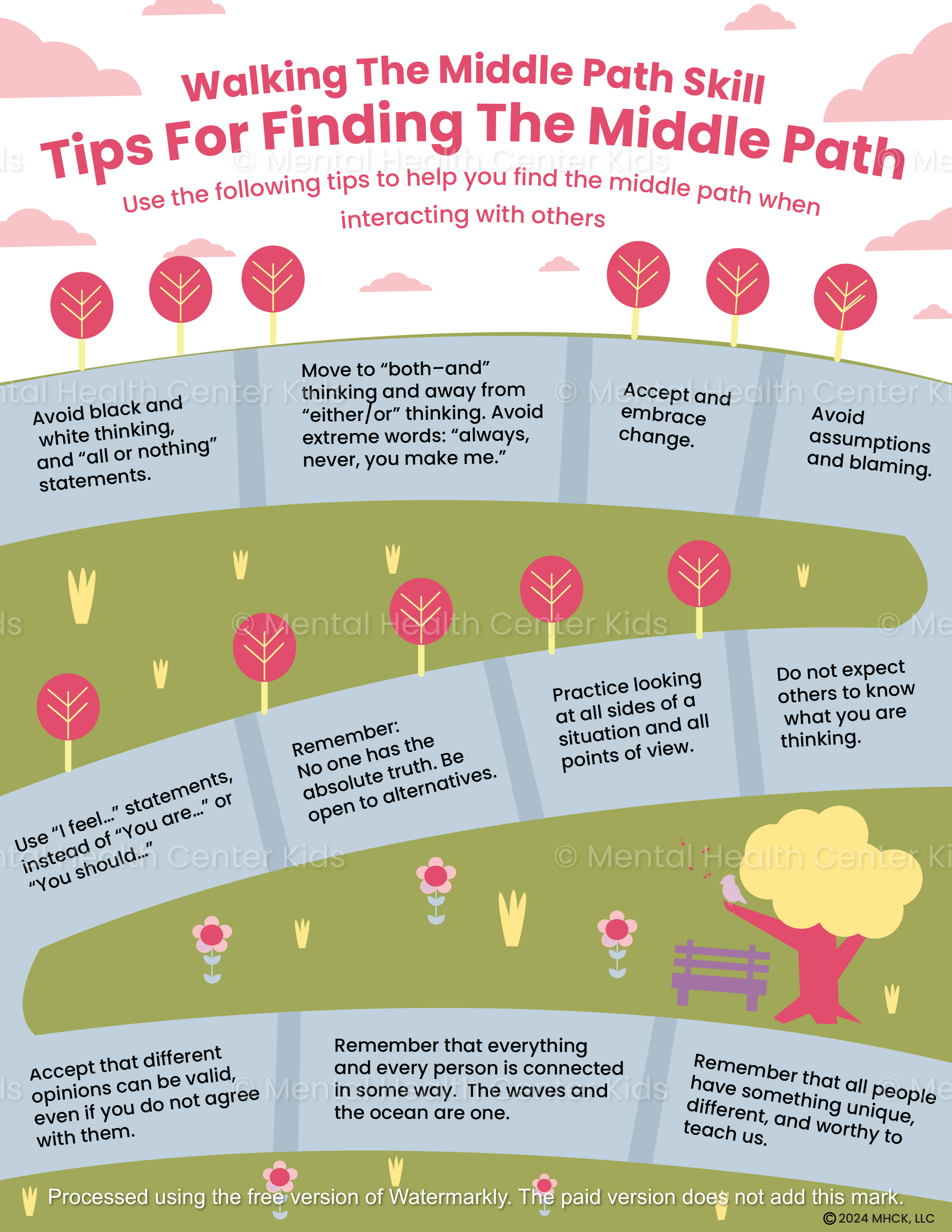DBT Tips For Finding The Middle Path Handout


Walking the Middle Path is a concept in Dialectical Behavior Therapy (DBT) that involves finding a balance between two opposing viewpoints. It integrates skills like validation and acceptance. Learning the art of walking the middle path can help clients develop more adaptive responses to difficult situations in life while also understanding the experiences of others.
The DBT Tips for Finding the Middle Path handout offers actionable tips and insights for clients to validate the experiences, opinions, and emotions of others. It features a scenic pathway that represents their journey towards achieving more peaceful relationships by “finding a middle ground.”
Using this handout helps kids and teens approach situations involving other people with flexibility, especially as they view things from different angles. After learning about walking the middle path, they can engage in an art activity where they can draw or paint their understanding of the skill.
Our Dialectical Thinking worksheet provides an opportunity for application, and our Dialectical Thinking poster provides additional examples of the “middle path” concept.
*This item is an instant digital download. A link to download your files will be emailed to you once payment is confirmed.
Want more resources like this? Check out our full catalog of DBT worksheets and handouts.
References:
- Freeman, K., James, S., Klein, K. P., Mayo, D., & Montgomery, S. (2015). Outpatient Dialectical Behavior therapy for adolescents engaged in Deliberate Self-Harm: Conceptual and methodological considerations. Child and Adolescent Social Work Journal, 33(2), 123–135. https://doi.org/10.1007/s10560-015-0412-6
- Rathus, J. H., Campbell, B., Miller, A. L., & Smith, H. (2015c). Treatment Acceptability Study of Walking The Middle Path, a New DBT Skills Module for Adolescents and their Families. American Journal of Psychotherapy, 69(2), 163–178. https://doi.org/10.1176/appi.psychotherapy.2015.69.2.163
- Shea, L. (2020c). The courage to be: Using DBT skills to choose who to be in uncertainty. Journal of Humanistic Psychology, 61(2), 260–274. https://doi.org/10.1177/0022167820950887
- Instant digital download
- File: PDF
- Size: 8.5" x 11"
Frequently Asked Questions
DBT Tips For Finding The Middle Path Handout
Thank you for the 5-star review, Jennifer! We hope our DBT Tips for Finding the Middle Path Handout is proving helpful in your practice or personal life. When you have some free time you are welcome to check out the other Walking the Middle Path products in our store.



